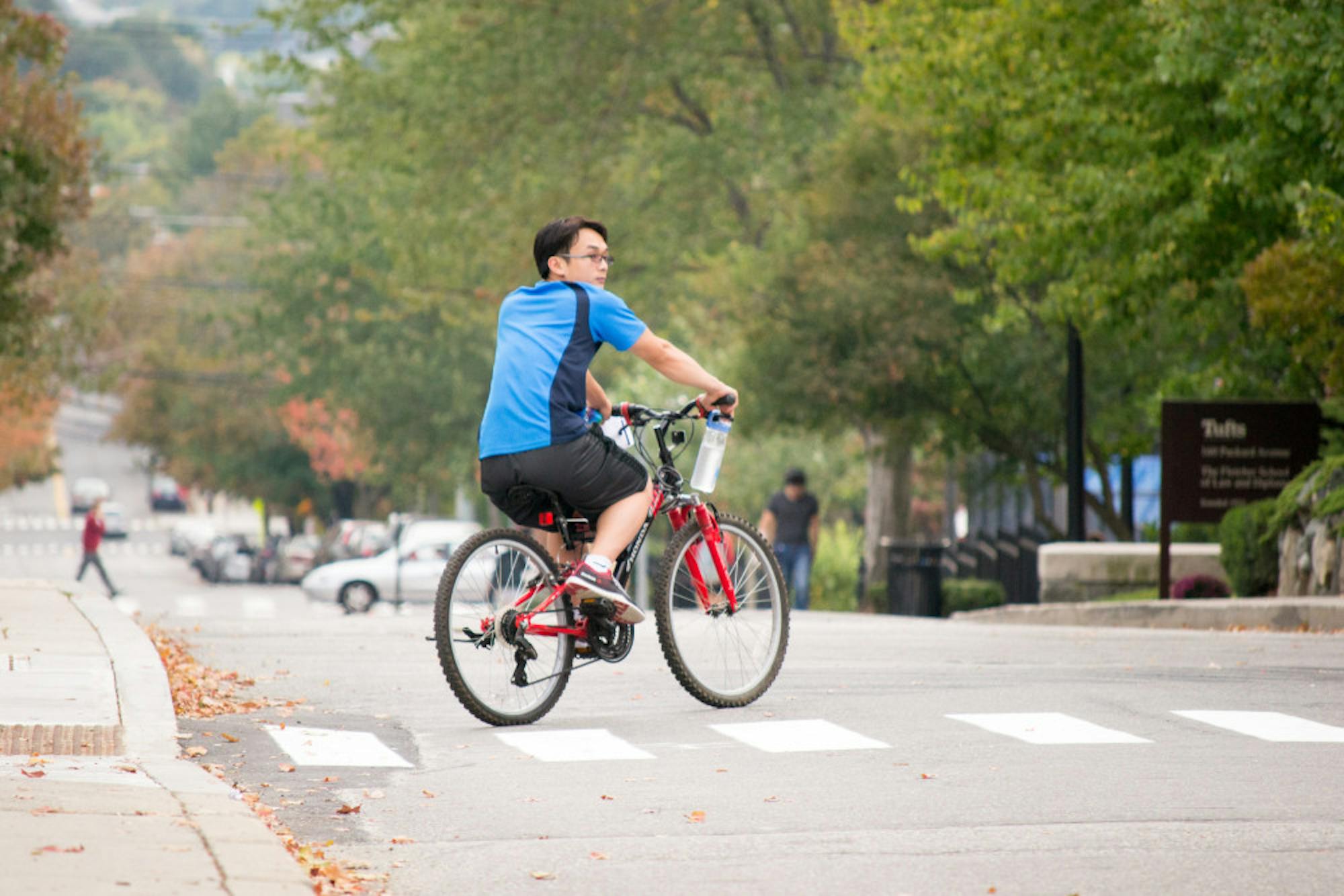Stuck between a need for grocery shopping and a limited amount of parking options, students are often in need of transportation methods other than personal cars. In order to encourage more environmentally friendly transportation options, Tufts Office of Sustainability (OOS) last month promoted the annual Massachusetts Clean Air Challenge, a program designed to challenge people around the state to travel more sustainably.
Although the event was sponsored by MassRIDES -- the Department of Transportation's free program to improve air quality and reduce traffic congestion -- OOS also took the opportunity to advertise many of its own initiatives.
“We really wanted to encourage students, faculty and staff to take advantage of sustainable transit at the university, and to learn more about how they can get around in an environmentally friendly way,” OOS Communications Specialist Lauren Martin said.
These programs include bike sharing services such as Tufts Bikes and Hubway, a service that lets members borrow bikes from stations across the Greater Boston area.
“[Bikes] are great if you want to go the grocery store or to a coffee shop to meet a friend, and that's just a little bit too far for you to want to walk,” Martin said.
This year the challenge also incorporated a commuter rewards system called NuRide. NuRide is a website that provides commuters with rewards year-round for traveling sustainably, but also offered special promotions during the Clean Air Challenge.
“If you go to [NuRide.com] and sign up, it creates your profile, and then you are able to log your miles if you walk, bike, take public transportation or use some other form of green transportation,” Martin said. “Once you accumulate a certain number of miles, you will earn discounts at local businesses, and during the clean air challenge, people who log miles were eligible to earn prizes from MassRIDES.”
NuRide encourages users to travel sustainably not only by offering awards, but also by illustrating some of the effects of environmentally friendly travel.
"It will tell you how many miles of gas you saved, how much money you saved from not using gas and how many calories you burned,” Martin added.
NuRide proved an attractive incentive to students at Tufts who wanted to become more environmentally aware. According to Martin, more than 40 new users were registered during the week of the Clean Air Challenge. In total more than 70 Tufts students and faculty logged trips, a large enough number to make Tufts the winner of the challenge.
Students were quick to praise the positive effects the website could have.
“If someone who doesn’t really pay attention to how much they use less sustainable transportation is forced to account for how they travel, then they will have those moments where they are like, 'oh, there was that time this week I took the car here,'” Urban and Environmental Policy and Planning graduate student Peter Ciurczak said. “I think that could help raise awareness.”
The simplicity of the website was also an attractive feature.
“The app is really straightforward,” Ciurczak said. “It lets you plug in routes and set how many times a week you take them, and simplicity is best. There are definitely a lot of commuters who come to Tufts who should download the app, because once you set up your route and let it go, it takes care of itself.”
NuRide did receive some criticism, however, for not including all forms of sustainable transportation. According to Andrew Tirrell, a lecturer in the Department of Political Science, the university recently installed electric car chargers on campus, but the NuRide website did not have an option to log commutes in an environmentally friendly vehicle. Tirrell expressed frustration with this missing feature.
“We have the technology now [so that] carpooling isn’t the only option,” Tirrell said. “We should celebrate that we don't have to choose between living close enough to bike to campus or doing something we can't be proud of. Let's talk about how many people are driving to campus with hybrids and really promote that."
Although the Clean Air Challenge has ended, Tufts students will be encouraged to continue sustainable transportation habits through other programs. Another event that aims to get students and staff to switch from four wheels to two is Bay State Bike Week, which will run from May 10 to May 18, according to Martin.
Students are also hoping to see greater publicity for the challenge in future years.
“If the people promoting the Clean Air Challenge came in and talked to some classes and had more of an interactive presence, it could really encourage students," Ciurczak said. "If they could come in and talk about what it is, what its effects are and what it does, you would probably get more people in that way.”
Tufts goes green with MassRIDES Clean Air Challenge

A student biking on Tufts campus is pictured.





